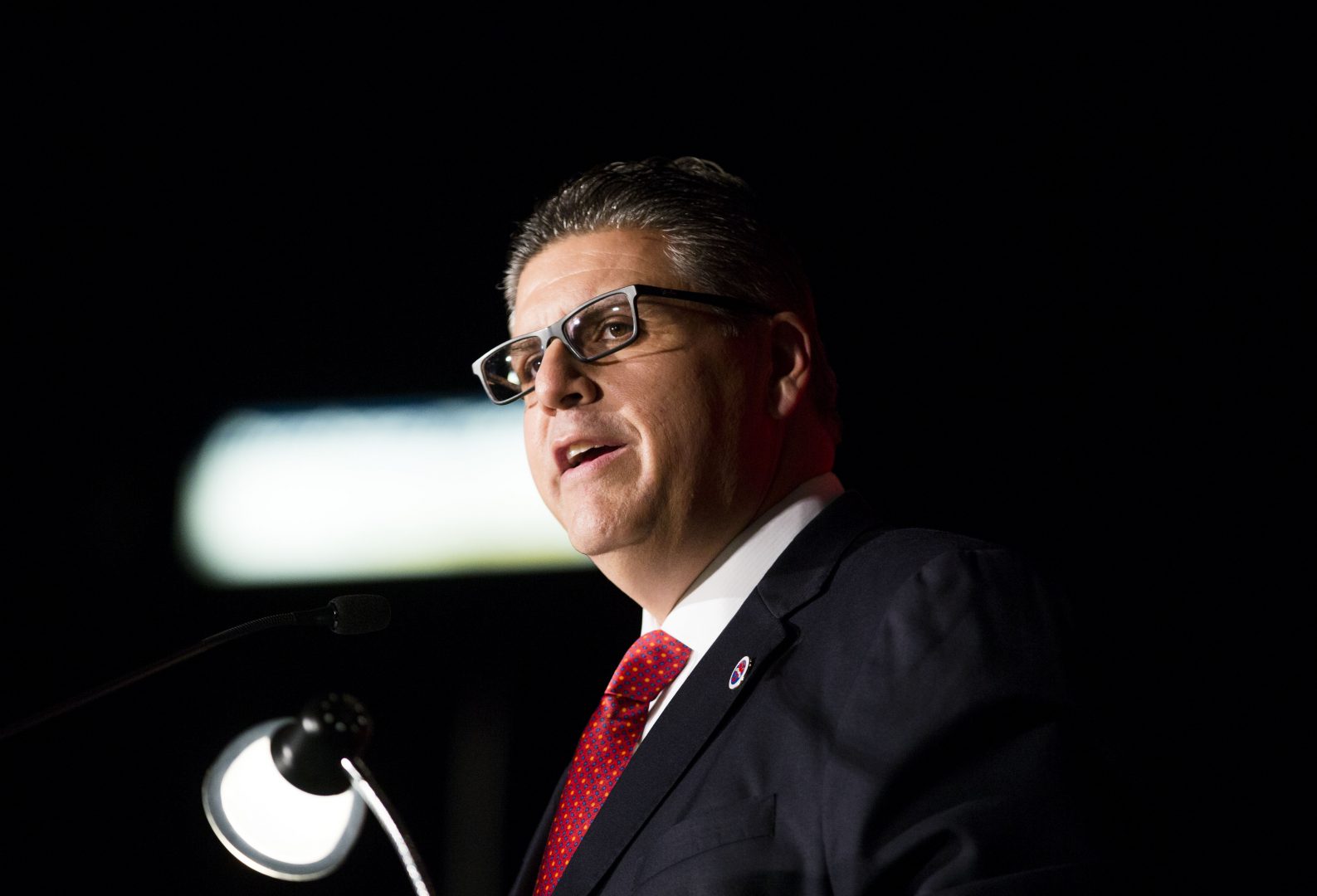California State University Chancellor Joseph I. Castro delivered his first State of the CSU address during the Board of Trustees meeting Tuesday, detailing his goals and highlighting the progress made by the 23-campus system.
During the address, Castro spoke about the achievements made during the first phase of the CSUCCESS Initiative — a program that is making iPad Airs, Apple Pencils and Apple Smart Keyboard Folios free of charge to all incoming first year and transfer students.
“Demand is high and we will distribute new high quality reliable computing equipment to up to 35,000 students. I’m confident that it will be a game changer in terms of student’s success,” Castro said.
Fresno State is one of eight campuses in the CSUCCESS initiative as of Tuesday, which includes San Marcos, Northridge, Los Angeles, Humboldt, Bakersfield, Maritime Academy and Channel Islands.
Looking back on the last 18 months, Castro, the former Fresno State president, reflected on the impact the pandemic has had on the CSU system and shared some lessons that he felt would honor those who passed away from COVID-19.
“The past 18 months have illuminated the path forward. My message today? Let’s listen to, let’s honor, the voices of the pandemic. To ignore them is to compound the tragedy. So let’s be inspired by them. Let’s heed their lessons as we reimagine an even more vital California State University, ” he said.
He said students are continuing to excel at an “all time high,” highlighting that almost 133,000 students earned degrees in 2020 and 2021.
Looking back on how students have been impacted during the pandemic, Castro also shared how some students are feeling and how they are looking for compassion.
“During each visit, I’ve had the pleasure of spending time with students, and everytime I’m reminded just how much our students have gone through as they continue to work towards their degrees during extraordinarily challenging circumstances,” he said. “The loss of family and friends, the loss of jobs, the loss of homes and occasionally the loss of hope.”
Castro said that he made efforts to ask students what they need in order to better their experience during these times.
“Their responses have been heart wrenching in their simplicity. They want understanding, empathy, a little flexibility, they want compassion,” he said
Mental Health First Aid training programs are implemented throughout CSU campuses to help faculty become mental health “first responders” and care for students in mental or emotional distress until they are provided professional help. Three CSU faculty members are leading the programs.
“So far, eight cohorts have been conducted and more than 175 faculty have been certified,” Castro said.
Castro said he plans to make the CSU system more inclusive and equitable, noting that it is an important goal to provide a sense of belonging at campuses.
“Today, 45% of CSU staff identify as a person of color as compared to roughly one-third a decade ago,” he said. “For instructional faculty, the percentage is 35%. And significantly, nearly half — 47% — of our most recent tenure-track cohort identify as persons of color.”
Castro formed an advisory committee to find solutions to solve equity gaps in the graduation rates of students of color, first-generation students and low-income students. He said the CSU will be committed to improving conversations between campuses about what tactics are working and what still needs to be done.
“This effort will require a renewed commitment to transparency and accountability — frank and honest discussions about what’s working and where we are falling short, with earnest collaboration and data-sharing between and among campuses so we can all benefit from those who are succeeding,” Castro said.
He noted other resources from the system that help food-insecure students. Castro said Fresno State’s Student Cupboard has served as a national model in addressing student food insecurity.
Closing out the address, Castro gave his final remarks on the State of the CSU, saying the system is strong and poised for the future.
“The state of the CSU is strong. It is resilient. It is resolute. The state of the CSU is poised, poised to honor the voices of the pandemic,” Castro said. “To be even more courageous and bold. More technology focused. To show even greater compassion, and to answer the call to be an even more accessible, inclusive and equitable institution so that genius can thrive.”
Jannah Geraldo contributed to this story.





